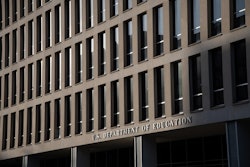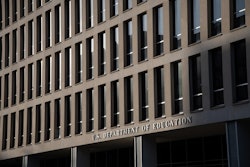A new report released this week presents data indicating that more students experience upward economic mobility at Historically Black Colleges and Universities (HBCUs) than at Predominantly White Institutions (PWIs).
The report titled, “Moving Upward and Onward: Income Mobility at Historically Black Colleges and Universities” released by the Samuel DeWitt Proctor Institute for Leadership, Equity & Justice at Rutgers Graduate School of Education examines intergenerational income mobility of recent HBCU graduates, comparing it to upward mobility and economic stratification at other institutions.
In the forward to the report, Dr. Walter M. Kimbrough, president of Dillard University, wrote that HBCUs have consistently supported low-income and Pell Grant-eligible students, which has enabled these graduates to enter the middle class.
“Sometimes when people look at graduation rates or retention rates of HBCUs they compare those to institutions, usually PWIs, that don’t have as many low-income students or Pell Grant-eligible students, and that’s really not a fair comparison,” said Dr. Marybeth Gasman, the Samuel DeWitt Proctor Endowed Chair in Education and Distinguished Professor in the Graduate School of Education at Rutgers University. “We found in this data set that HBCUs were enrolling higher numbers of low-income students. What that says to us is that they are doing the lion’s share of the work when it comes to low-income, African-American students, and they’re having to add a great deal to the experiences of the students because a lot of these students have come in under-prepared,” Gasman added.
Gasman collaborated with Dr. Robert A. Nathenson, research specialist for the Consortium for Policy Research in Education at the Graduate School of Education at the University of Pennsylvania and Dr. Andrés Castro Samayoa of Boston College. They studied the data provided by Harvard University economist Dr. Raj Chetty.
Gasman, whose research focuses on minority-serving institutions, said she constantly hears questions about the relevance of HBCUs. By spotlighting the social and economic mobility of HBCUs graduates, there leaves little question as to the impact and importance of these historic institutions.
The report tracks the mobility rate of students when compared to the incomes of their parents. Nearly 70 percent of HBCU students reach at least middle-class incomes. The expectation for low-income students to improve their economic position is high. Of the 50 HBCUs examined, Xavier University of Louisiana and Tuskegee University achieve particularly high mobility.














